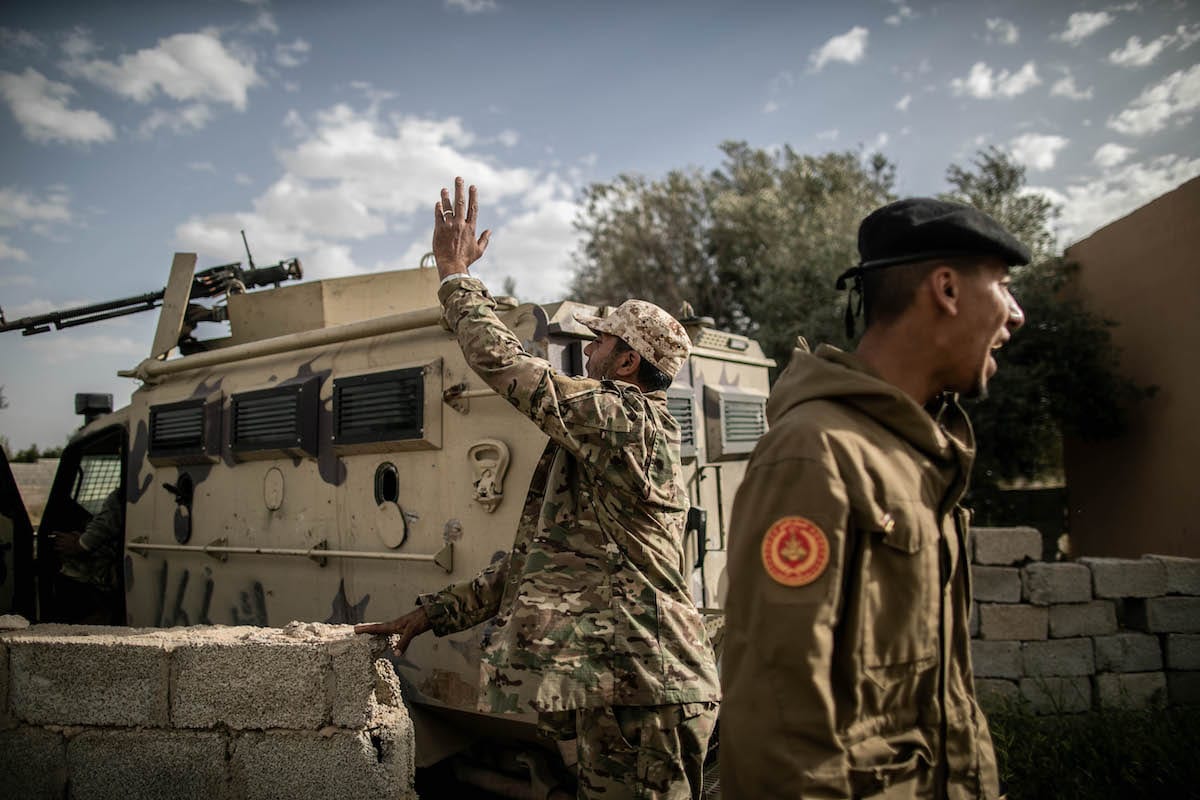
The Egyptian–Libyan War might not be as well-known as other conflicts, but it played a significant role in shaping North African geopolitics. This brief yet intense war occurred in July 1977, lasting only four days. Egypt and Libya, two neighboring countries with a shared history, found themselves at odds due to political tensions and border disputes. The conflict saw a series of skirmishes and airstrikes, leading to casualties on both sides. Despite its short duration, the war had lasting impacts on the region's political landscape. Understanding this conflict helps us grasp the complexities of Middle Eastern and North African relations. Here are 25 intriguing facts about the Egyptian–Libyan War that shed light on this pivotal moment in history.
Key Takeaways:
- The Egyptian–Libyan War, also known as the Four-Day War, was a brief but intense conflict in 1977, highlighting the importance of strong military capabilities and effective diplomacy in regional conflicts.
- The war had lasting impacts on Egypt and Libya, shaping their political and military strategies, and serving as a reminder of the potential for rapid escalation in territorial disputes.
Background of the Egyptian–Libyan War
The Egyptian–Libyan War, also known as the Four-Day War, was a brief but intense conflict between Egypt and Libya in 1977. This war was rooted in political tensions and territorial disputes. Here are some intriguing facts about this short-lived yet impactful conflict.
-
The war lasted only four days, from July 21 to July 24, 1977.
-
Egyptian President Anwar Sadat and Libyan leader Muammar Gaddafi had a strained relationship, contributing to the conflict.
-
The war began when Libyan forces attacked Egyptian border posts.
-
Egypt responded with airstrikes on Libyan targets, escalating the conflict.
-
The conflict was part of a larger struggle for influence in the Arab world.
Key Events During the War
Several significant events marked the Egyptian–Libyan War, shaping its course and outcome. These events highlight the intensity and rapid progression of the conflict.
-
Egyptian forces quickly gained the upper hand due to their superior military capabilities.
-
Libyan forces launched a counterattack but were unable to make significant gains.
-
The war saw the use of tanks, artillery, and aircraft by both sides.
-
Egyptian forces advanced into Libyan territory, capturing several key positions.
-
The conflict ended with a ceasefire brokered by Algeria and the Arab League.
Impact on Egypt and Libya
The war had lasting effects on both Egypt and Libya, influencing their political and military strategies. These impacts are still felt today in various ways.
-
The war strained Egypt's resources but demonstrated its military strength.
-
Libya faced significant losses, both in terms of military equipment and personnel.
-
The conflict led to a temporary cooling of relations between the two nations.
-
Egypt's victory bolstered President Sadat's position domestically and internationally.
-
Libya's defeat weakened Gaddafi's standing among his people and in the Arab world.
International Reactions
The international community closely watched the Egyptian–Libyan War, with various countries and organizations reacting to the conflict. These reactions influenced the war's resolution and aftermath.
-
The United States and the Soviet Union both called for an end to the hostilities.
-
The Arab League played a crucial role in mediating the ceasefire.
-
Algeria's President Houari Boumediene was instrumental in negotiating peace between the two nations.
-
The conflict drew attention to the need for greater stability in the region.
-
The war highlighted the potential for regional conflicts to escalate quickly.
Legacy of the Egyptian–Libyan War
The legacy of the Egyptian–Libyan War extends beyond the immediate aftermath, affecting regional politics and military strategies for years to come. These lasting effects are a testament to the war's significance.
-
The war underscored the importance of strong military capabilities in regional conflicts.
-
It highlighted the need for effective diplomacy to prevent and resolve conflicts.
-
The conflict influenced future military strategies and alliances in the region.
-
The war served as a reminder of the potential for rapid escalation in territorial disputes.
-
The Egyptian–Libyan War remains a significant event in the history of both nations, shaping their political and military landscapes.
Final Thoughts on the Egyptian–Libyan War
The Egyptian–Libyan War of 1977, though brief, left a lasting impact on both nations. This conflict, driven by political tensions and territorial disputes, showcased the complexities of regional politics in North Africa. The war highlighted the importance of diplomacy and the potential consequences when it fails. Despite the short duration, the war caused significant casualties and strained relations between Egypt and Libya for years. Understanding these historical events helps us appreciate the delicate balance of power and the need for peaceful resolutions. The lessons from this conflict remain relevant today, reminding us of the importance of dialogue and cooperation in maintaining regional stability. By reflecting on the past, we can better navigate the challenges of the present and future.
Frequently Asked Questions
Was this page helpful?
Our commitment to delivering trustworthy and engaging content is at the heart of what we do. Each fact on our site is contributed by real users like you, bringing a wealth of diverse insights and information. To ensure the highest standards of accuracy and reliability, our dedicated editors meticulously review each submission. This process guarantees that the facts we share are not only fascinating but also credible. Trust in our commitment to quality and authenticity as you explore and learn with us.
